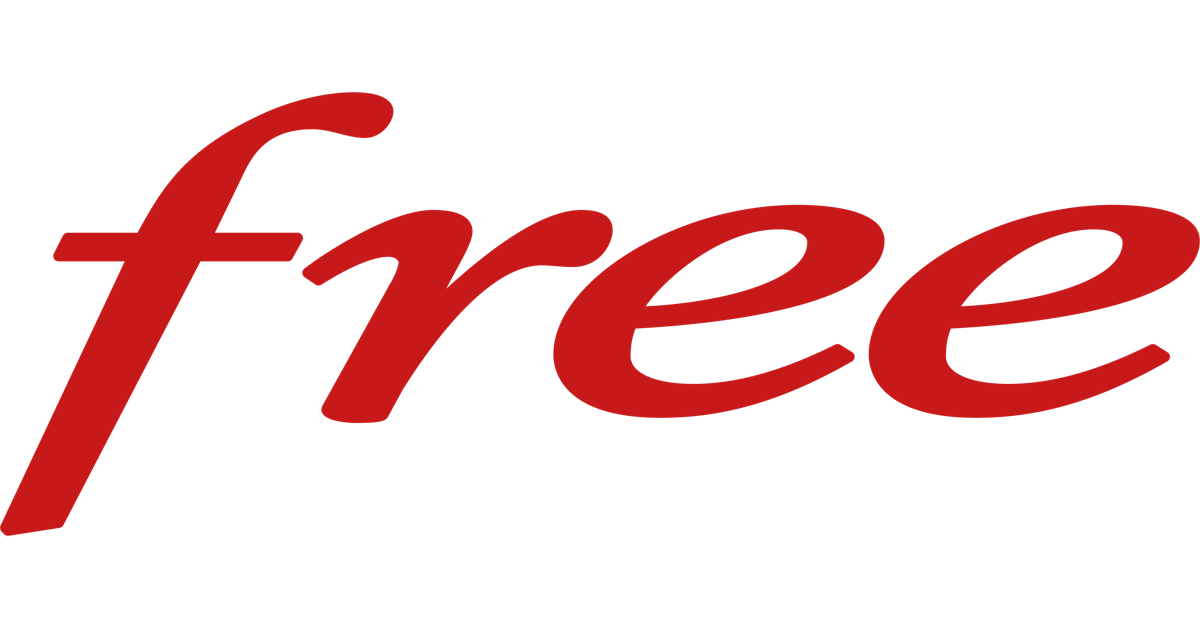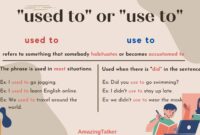Free Used Car Craigslist: Unlocking the Allure and Reality of "No-Cost" Rides sale.truckstrend.com
The promise of a "free" car is an intoxicating one. In an era where vehicle prices, both new and used, continue to climb, the idea of acquiring a car for absolutely no upfront cost seems like a dream come true. For many, Craigslist, the sprawling online classifieds platform, is the first, and often only, place where such a dream might appear within reach. This comprehensive guide delves into the fascinating, often challenging, and sometimes rewarding world of "Free Used Car Craigslist," exploring what this truly means, how to navigate it, and the critical considerations necessary to turn a seemingly impossible offer into a practical reality.
The Allure and Reality of "Free Used Car Craigslist"
Free Used Car Craigslist: Unlocking the Allure and Reality of "No-Cost" Rides
At its core, "Free Used Car Craigslist" refers to listings on Craigslist where individuals offer a vehicle for $0. The importance and relevance of this phenomenon stem from its potential to provide a vehicle to someone with an extremely limited budget, or to supply valuable parts for a restoration project, or even to offer a learning opportunity for aspiring mechanics.
However, it’s crucial to understand that "free" in this context almost never means a fully functional, road-ready vehicle that you can simply drive away. Instead, it typically signifies a car that an owner wants to dispose of quickly, often because it is:
- Non-running: The engine is seized, transmission is dead, or it has significant mechanical failures.
- Damaged: Involved in an accident, severe body damage, or extensive rust.
- Abandoned: Left on a property, inherited, or no longer wanted.
- Lacking a The legal document proving ownership is missing, lost, or never existed, making it difficult or impossible to register.
- A "Parts Car": Its primary value is for components that can be salvaged and used in another vehicle.
- A Junk Car: It’s at the end of its life, and the owner wants to avoid paying towing or disposal fees.

The "free" aspect is the owner’s desire to offload a burden, often saving them money on towing, storage, or junking fees. For the discerning and prepared recipient, this can indeed be a golden opportunity, but it requires significant research, logistical planning, and often, a subsequent financial investment.
Why Do People Give Away Cars on Craigslist?
Understanding the motivation behind a "free car" listing is key to assessing its true value. Common reasons include:

- Avoiding Disposal Costs: Towing and junking a non-running vehicle can be expensive. Offering it for free is often cheaper than paying a salvage yard.
- Inherited or Unwanted Vehicle: Someone might inherit a car they don’t need, or a relative’s old vehicle that has been sitting for years.
- Moving or Downsizing: Owners might need to clear space quickly before a move and don’t have time to sell a low-value or non-running car.
- Broken Beyond Repair (for them): A car might have a major issue (e.g., blown engine, rusted frame) that the owner deems too expensive or complex to fix, but it might still hold value for parts.
- Missing If the title is lost or never transferred properly, selling the car legally becomes difficult. Giving it away avoids this bureaucratic headache.
- Environmental Responsibility (sort of): Some people simply want to ensure the car doesn’t end up polluting or becoming an eyesore.

Finding "Free" Cars on Craigslist: A How-To Guide
While not as common as paid listings, "free" cars do appear. Here’s how to search effectively:
- Navigate to Craigslist: Go to your local Craigslist site.
- Go to the "For Sale" Section: Then click on "cars & trucks."
- Search Keywords: Use terms like:
- "free car"
- "junk car"
- "parts car"
- "take away"
- "needs gone"
- "needs work"
- "project car"
- "abandoned car"
- "scrap car"
- Also check the "free stuff" section under "for sale." Sometimes cars end up there.
- Filter by Price: Some Craigslist interfaces allow you to set a maximum price. Set it to "$0" or "free."
- Be Persistent: Listings come and go quickly. Check frequently, especially at off-peak hours when new listings might appear.
- Expand Your Search Radius: If your local area yields nothing, consider expanding your search to nearby cities or regions.
The "Free" Car Acquisition Process
Once you find a potential "free" car, follow these steps carefully:
- Contact the Seller Immediately: "Free" items go fast. Be polite, express genuine interest, and ask initial qualifying questions.
- Ask Critical Questions:
- Title Status: Is there a clean title in the seller’s name? This is paramount. If not, understand the implications.
- Known Issues: Why is it free? What’s wrong with it? (Be prepared for a long list).
- Location & Accessibility: Where is the car located? Is it easily accessible for inspection and towing?
- History: How long has it been sitting? What’s its last known running condition?
- Reason for Giving Away: This helps gauge their urgency and honesty.
- Schedule an Inspection: Do not agree to take any car sight unseen. Bring a knowledgeable friend (mechanic or car enthusiast) if possible.
- Check for Rust: Especially frame and critical structural components.
- Look for Fluid Leaks: Under the car and in the engine bay.
- Assess Interior/Exterior Condition: While cosmetic damage is expected, look for signs of major neglect or abuse.
- Check for Missing Parts: Are essential components like the engine, transmission, or wheels present?
- Verify VIN: Match the VIN on the car to any documentation provided.
- Verify Title (Again): If a title is promised, physically inspect it. Ensure it’s signed correctly and matches the seller’s ID. Understand your state’s DMV requirements for title transfer, especially for vehicles with no current registration or a salvage title.
- Arrange Transport: Assume the car is non-running. You will likely need a flatbed tow truck or a car trailer. Factor this cost into your decision.
- Secure a Bill of Sale: Even for a free car, a bill of sale protects both parties. It should include:
- Date of transaction
- Seller’s and buyer’s full names and addresses
- Vehicle make, model, year, and VIN
- Stated price: "$0" or "Gift"
- Signatures of both parties.
- Crucially, if a title is involved, ensure it is properly signed over to you.
Important Considerations Before Taking a "Free" Car
- Title is King: Without a clean, transferable title in the seller’s name, the "free" car is essentially worthless for legal road use. Acquiring a title for an abandoned or untiled vehicle is a complex, often impossible, and expensive process that varies by state. Do your research before you commit.
- Hidden Costs: "Free" only applies to the purchase price. Expect significant costs for:
- Towing: Often hundreds of dollars.
- Repairs: Potentially thousands, ranging from basic maintenance to major engine/transmission work.
- Parts: If salvaging for components.
- Registration & Taxes: Even for a free car, you’ll owe registration fees and potentially sales tax based on estimated value in most states if you plan to make it road legal.
- Insurance: A must-have for any road-legal vehicle.
- Disposal: If the project fails, you’ll pay to junk it.
- Your Skills & Resources: Are you a skilled mechanic? Do you have the tools, space, and time for a major project? If not, the "free" car will quickly become an expensive burden.
- Purpose: Clearly define your goal. Is it for:
- Scrap Metal? Calculate potential weight vs. towing costs.
- Parts Donor? Ensure the specific parts you need are present and in good condition.
- Restoration Project? Be prepared for a long, expensive journey.
- Flipping? Extremely unlikely with a free car unless you’re a professional rebuilder with a network for parts and labor.
- Legalities: Be wary of cars that seem "too good to be true" or have vague origins. Ensure it’s not a stolen vehicle or one with outstanding liens.
Benefits of "Free" Cars (When Prepared)
Despite the challenges, "free" cars offer distinct advantages for the right individual:
- Zero Purchase Price: The most obvious benefit. No upfront car payment.
- Source of Cheap Parts: Salvage valuable components for another vehicle, saving significantly over new or used parts.
- Learning Opportunity: A fantastic way for aspiring mechanics or DIY enthusiasts to practice repairs, disassemble, and understand vehicle systems without fear of ruining an expensive asset.
- Scrap Value: Even a completely dead car has value as scrap metal, which can offset some towing costs.
- Community Contribution: Helping someone dispose of an unwanted item responsibly.
- The Rare Diamond in the Rough: Occasionally, a genuinely fixable car is given away by someone who simply lacks the time, knowledge, or funds for a minor repair. These are rare but possible.
Challenges and Solutions
| Challenge | Solution/Consideration |
|---|---|
| No Title / Problematic Title | Major Red Flag. In most states, no title means no registration, no road legality. Research your state’s "abandoned vehicle" or "salvage title" laws. Often, it’s an insurmountable hurdle for a private citizen. Best to walk away unless it’s strictly for parts/scrap where title isn’t needed. |
| Non-Running / Major Mechanical Issues | Assume this is the case. Get an honest assessment of the damage. Can you fix it yourself? What are parts costs? Is it worth investing in? Factor in towing. If the cost of repair exceeds the car’s potential value (even if free), it’s not worth it. |
| High Towing Costs | Get quotes beforehand. This can easily negate the "free" aspect. Consider if you have a friend with a truck/trailer, or if the car is close enough to home to justify a shorter tow. |
| Lack of Space / Storage | A non-running car takes up significant space. Do you have a garage, driveway, or private property where it can sit indefinitely without violating local ordinances? |
| Safety Concerns (if trying to fix) | Be aware of potential hazards (old fuel, rusted components, sharp edges, heavy parts). Always use proper safety gear and procedures. If you’re not experienced, get professional help. |
| Scams / Misrepresentation | Be wary of vague descriptions, sellers who rush you, or those unwilling to show the car/title. If it feels off, it probably is. Never send money or personal information before seeing the car. |
| Disposal if Project Fails | Have a backup plan. If you can’t fix it or get a title, you’ll need to pay a junk yard or scrap metal dealer to take it off your hands, potentially incurring more towing fees. |
Estimated Value & Associated Costs of "Free" Cars
While the purchase price is $0, there are always costs and potential values. This table outlines common scenarios:
| Scenario / Type of "Free" Car | Typical Condition / Purpose | Estimated Potential Value (if fixed/parts) | Common Associated Costs (Minimum Estimates) | Net "Free" Car Outcome / Advice |
|---|---|---|---|---|
| "Junk Car" / Scrap Only | Non-running, heavily damaged, no title, for scrap metal. | $100 – $300 (scrap value) | Towing: $100 – $300+ | Net Cost: You likely pay to get rid of it. Only take if you have free towing or it’s on your property and you’re salvaging parts yourself to offset costs. Best for experienced dismantlers. |
| "Parts Car" | Non-running, specific valuable components (engine, trans, body panels) are good. No title needed for parts. | $200 – $1,000+ (depending on specific parts) | Towing: $100 – $300+ Disposal of Remainder: $100 – $200 |
Potential Savings/Profit: If you need the parts for another vehicle, this can be a huge win. Factor in the time/effort to dismantle and dispose of the shell. |
| "Project Car" | Non-running, major mechanical issue, potentially restorable, often with title issues. | $500 – $5,000+ (after extensive work) | Towing: $100 – $300+ Parts: $500 – $5,000+ Labor (if outsourced): $1,000 – $10,000+ Title/Registration: $50 – $300+ |
Significant Investment: Only for dedicated DIY mechanics with deep pockets and plenty of time. Research title process beforehand. The "free" aspect is negligible compared to the total cost. Most end up as abandoned projects. |
| "Needs Minor Work" | Rare. Runs but needs simple fix (e.g., battery, flat tire, sensor replacement). Title status is critical. | $500 – $2,000+ (after minor repairs) | Towing: $100 – $300+ Minor Parts: $50 – $500 Title/Registration: $50 – $300+ |
Potential Bargain (Very Rare): This is the dream scenario. Still, verify title and inspect thoroughly. Be prepared for the "minor work" to snowball. Even a "free" car will incur costs to make it roadworthy and legal. |
Practical Advice and Actionable Insights
- Lower Your Expectations: Do not expect a drivable car. Assume it’s a project, a parts donor, or scrap.
- Title is Non-Negotiable (for road use): If you intend to drive it, a clean title is absolutely essential. Do not bend on this.
- Calculate All Costs: Factor in towing, potential parts, your time, and possible disposal fees. The "free" car could easily cost you more than a cheap running car.
- Bring an Expert: Always take someone knowledgeable about cars with you for inspection.
- Don’t Be Afraid to Walk Away: If the car’s condition, title status, or your assessment of the required effort doesn’t align with your goals, politely decline. There will be other "free" cars.
- Have a Plan B: What if you get it home and realize it’s beyond repair or your capabilities? Have a plan for disposal.
- Safety First: When working on any car, especially an old, neglected one, prioritize safety. Use jack stands, wear protective gear, and be aware of hazardous fluids.
Concluding Summary
The world of "Free Used Car Craigslist" is a fascinating microcosm of opportunity and challenge. While the allure of a zero-cost vehicle is strong, the reality is that "free" almost always comes with significant caveats, primarily in the form of required labor, parts, and crucial logistical expenses like towing. For the prepared, mechanically inclined individual seeking parts, a project, or simply a learning experience, a "free" car can indeed be a valuable acquisition. However, for those hoping for a cheap, ready-to-drive vehicle, the pursuit of "free" is likely to lead to frustration and unexpected costs. The key to success lies in realistic expectations, thorough due diligence, a clear understanding of your own capabilities, and an unwavering focus on the all-important title. Proceed with caution, and you might just find that hidden gem amidst the junk.
Frequently Asked Questions (FAQ)
Q1: Is a "free" car on Craigslist truly free?
A1: No, not entirely. While the purchase price is $0, you will almost certainly incur costs for towing, potential repairs, parts, registration, and potentially disposal if the project fails.
Q2: Can I get a running, road-legal car for free on Craigslist?
A2: It is extremely rare, bordering on impossible. "Free" cars are typically non-running, heavily damaged, or lack a proper title. Any car that runs and is road-legal will almost always have some market value.
Q3: What’s the biggest risk with a "free" car?
A3: The biggest risk is acquiring a vehicle without a clean, transferable title. Without it, you cannot legally register or drive the car in most states, making it a permanent paperweight or a parts donor at best.
Q4: How do I get a "free" car home if it doesn’t run?
A4: You will almost certainly need to arrange for a tow truck (flatbed is recommended) or a car trailer. Factor the cost of towing into your decision.
Q5: What should I check before taking a "free" car?
A5: Always check for a clean title in the seller’s name, assess the overall condition (rust, major damage, missing parts), and inquire about its mechanical history. Bring a knowledgeable friend if possible.
Q6: What if the "free" car doesn’t have a title?
A6: Unless you are strictly getting it for parts or scrap metal, or you are an expert in your state’s abandoned vehicle titling process (which is usually complex and expensive), it’s generally best to walk away.
Q7: Can I just take a "free" car without a bill of sale?
A7: While tempting, it’s highly advisable to get a bill of sale, even for a $0 transaction. It protects both you and the seller by documenting the transfer of possession and stating the "free" nature of the transaction. If a title is involved, ensure it’s properly signed over.




